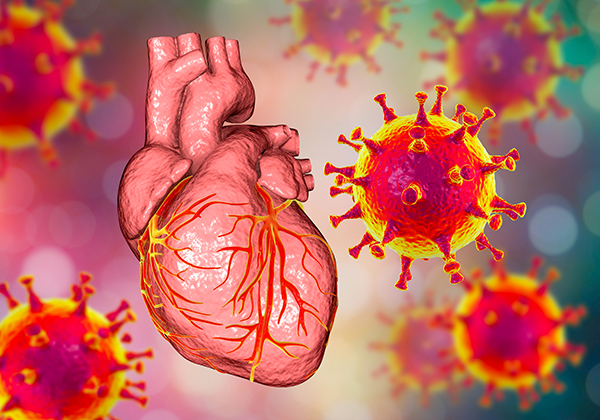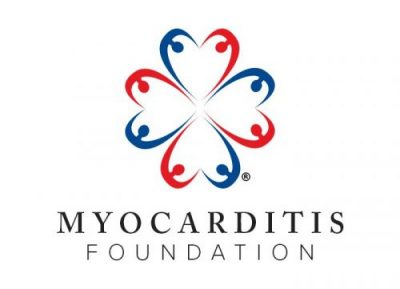Myocarditis may be classified as rare, but it affects thousands of adults and children each year. Myocarditis is inflammation of the myocardium (heart muscle) and can affect how the heart pumps. When the heart muscle is inflamed, it cannot pump as well because of the swelling (edema), and if too many of the heart muscle cells are damaged, the heart muscle becomes weakened. In some cases, this process happens very quickly and results in heart failure or even sudden death.
The area of the heart that is affected by the myocarditis will develop a “scar” similar to when you get a cut. The area remains irritable for a period of time, but the area of irritability will lessen as time goes on, but the scar will always remain. Scar tissue is not like heart muscle tissue because it does not contract, and it cannot help the heart to pump. If enough scar tissue forms in the heart, it can lead to heart failure or dilated cardiomyopathy.
What Is Heart Inflammation?
In short, inflammation is an immune response to invaders. The body releases immune cells and proteins into the bloodstream to defend against intrusive bacteria, viruses, or other dangerous intruders. This causes redness and swelling at the affected site of the heart muscle until the immune response subsides. You’ve probably noticed this occurring in a mild form around splinters or scrapes. The same phenomenon can occur in the muscle tissue of the heart, where it is known as myocarditis.
Inflammation due to myocarditis can affect individuals of any age, gender, race, and health condition. However, the high-risk population is boys from puberty to young adulthood.
When you have myocarditis, the following should be avoided:
- Excessive alcohol consumption (this can worsen the function of the heart muscle)
- Smoking (This can narrow the blood vessels and forces the heart to beat harder)
Causes of Heart Inflammation
Because inflammation is an immune response, it isn’t always a dangerous thing. Different kinds of immune activity can lead to different consequences. Many types of immune cells are good at fighting off infections without damaging the heart tissue. Others, however, can overdo their job.
Certain kinds of immune cells can cause more damage than they prevent. These include mast cells, which are the same kind of cells that release histamine and cause allergic reactions. Eosinophils are another example. Both mast cells and eosinophils release proteins that increase inflammation that can lead to long-term damage.
Inflammation and Heart Failure
Heart inflammation is often closely related to heart failure. In fact, it can be the direct cause. Severe inflammation can interfere with the heart’s ability to pump. This causes stress and strain, which may lead to heart failure.
While inflammation may not always directly cause heart failure, it often has long-term consequences. Too much inflammation can fail to heal properly, causing worse scarring and fibrosis. A badly scarred heart has difficulty pumping properly which may lead to heart failure.
Diagnosis and Treatment
Myocarditis can strike quickly in many cases and may result in fatalities before a patient experiences symptoms. However, there are ways to predict and diagnose heart inflammation and myocarditis before heart failure occurs. If your doctor thinks you may be at risk, he or she will perform the following tests:
- Examinations of your medical records and history
- Blood tests for infections and immune responses
- Physical exams for external signs of heart inflammation
- Echocardiography and electrocardiograms to examine heart function
- Tests for existing conditions that might increase risk of inflammation
If myocarditis is diagnosed, it’s possible to treat it and prevent related heart failure. There are a variety of medications and procedures available, and research is constantly furthering our ability to treat and prevent myocarditis. In addition, lifestyle changes can reduce the risk and prevent the condition from worsening.
Find Out More about Inflamed Heart Failure
Inflamed heart failure is a common condition, but it is also very preventable. At the Myocarditis Foundation, we are dedicated to increasing awareness of heart inflammation and furthering the medical field’s ability to diagnose, treat, and prevent myocarditis. To find out more about heart inflammation’s role in heart failure, contact us today or get involved in finding answers and helping people live longer, healthier lives.
































